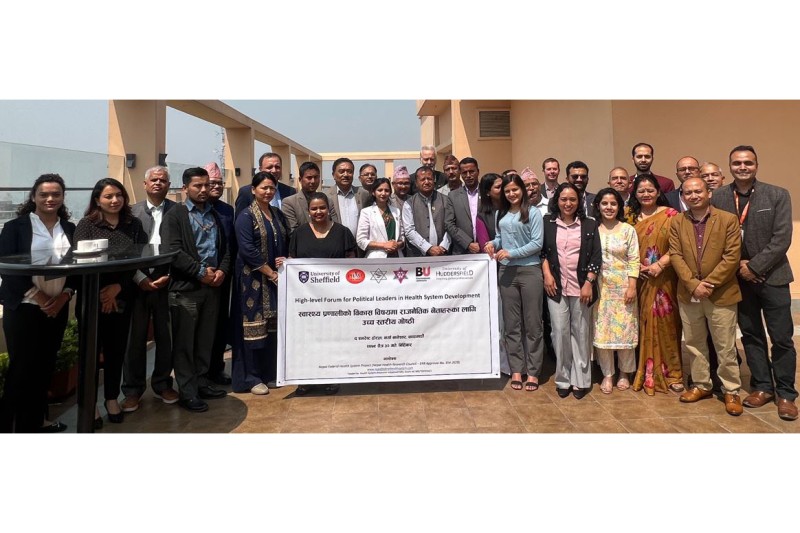
This week researchers from the UK, including Bournemouth University, and Nepal met MPs to discuss their findings of how federalisation of the political system has affected Nepal’s health care organisation.
The researchers have identified positive and negative developments in the county’s decentralized health system. Positive aspects included improvements in the availability of resources for health, the construction of new health posts and hospitals and better availability of essential medicines in many places. The research team also commented on the positive management of COVID-19, compared to other many countries.
Areas that need improvement include communication between different levels of government , several health workforce-related issues, oversight and coordination of buying of medicines which can cause both shortages and overstocking. There were also financial issues with some local level governments unable to spend budgets, whilst others didn’t allocate enough money for health.
Professor Simon Rushton from the University of Sheffield stated: “There appeared to be more health workers available at the local level since the start of federalisation, and there appeared to be less absenteeism due to local control. However, at the same time there are still problems with lack of expertise, retention of staff, and a lack of career development for health workers.”
Dr. Jiban Karki (PHASE Nepal) added “there is a need for education and training of local policymakers on how to do health budgeting.”
The 2015 Constitution brought federalisation and with it, significant changes to the health system. To understand these changes researchers worked in three provinces where they interviewed 243 stakeholders, at all three levels of government. They also conducted 31 Participatory Policy Analysis workshops at local and province levels. The research summarized the findings for the invited MPs.
This interdisciplinary study ‘The impact of federalisation on Nepal's health system: a longitudinal analysis’ is funded for 3 ½ years by the Health System Research Initiative. The latter is a UK collaboration between three funders: the MRC (Medical research Council), the Foreign, Commonwealth & Development Office, and the Welcome Trust. The team includes researchers from Manmohan Memorial Institute of Health Sciences (Kathmandu), and PHASE Nepal and three UK institutions (the Universities of Sheffield, Bournemouth, and Huddersfield). The study began in April 2020 and will last till January 2024.
Edwin van Teijlingen, Professor of Reproductive Health at Bournemouth University said, “In any country there must be continuous discussion about which health policy decisions should be taken at each level. This means finding the right balance between health decisions required to taken at national level,such as the appropriate public health approach to dealing with dengue fever, at provincial level, for example the location of district hospitals, and those best taken at local level, for example providing culturally appropriate health services to the community.”
The researchers will discuss their findings and recommendations with MPs on Thursday 13 April at the Everest Hotel.



